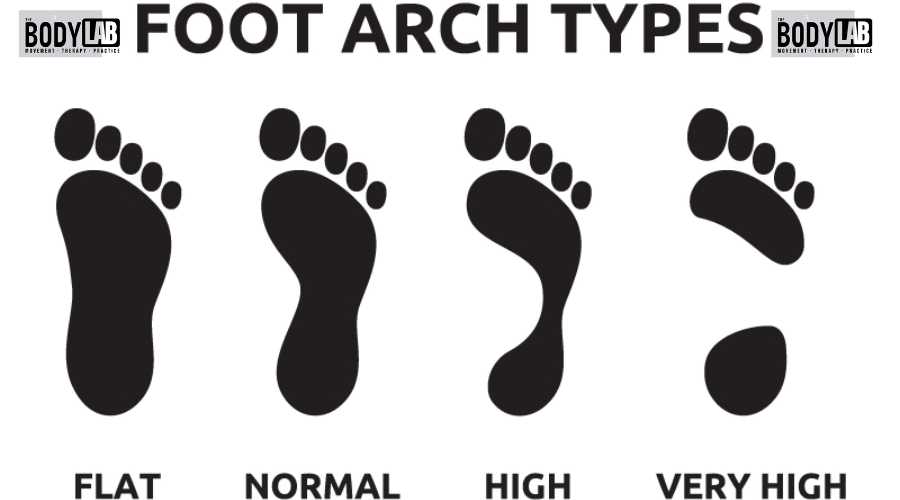High-Arched Feet (Pes Cavus): How to Identify & Manage Its Impact on Your Body
What is Pes Cavus (High-Arched Feet)?
Pes cavus, or high-arched feet, is a foot posture where the arch is abnormally raised. Unlike flat feet—which cause the foot to roll inward—high arches often shift pressure toward the heel and ball of the foot. This can lead to instability, inefficient gait mechanics, and even pain in your knees, hips, or spine.
🦶 New to this topic? Start with our in-depth guide:
How to Know If You Have High-Arched Feet
Common Signs & Symptoms:
✔️ Heel and forefoot pressure
✔️ Difficulty finding comfortable shoes
✔️ Frequent ankle sprains
✔️ Pain in feet, knees, hips, or back
✔️ Calluses or corns on the outer foot
✔️ Limited shock absorption
At-Home Arch Test:
Wet the bottom of your foot.
Step on a piece of paper.
Only a thin strip or no imprint between heel and ball = likely high arches.
How High Arches Affect the Whole Body
High arches can create a ripple effect beyond the feet. Here’s how:
1. Reduced Shock Absorption
The rigid arch reduces flexibility, increasing force through the ankles, knees, hips, and lumbar spine with every step.
2. Increased Risk of Injuries
Common complications include:
Ankle sprains
Plantar fasciitis
Stress fractures
Shin splints
Lower back pain
3. Poor Gait & Posture
Misaligned foot mechanics often disrupt the natural flow of walking (gait) and may cause compensations in spinal alignment and pelvic rotation.
Managing High-Arched Feet at The Body Lab Canberra
This isn’t about short-term fixes — it’s about functional, long-term support.
1. Gait Analysis & Movement Therapy
Using Video Gait Analysis and 3D Pressure Mapping, we assess your foot’s role in whole-body movement and load distribution.
2. Foot Mobilisation & Strengthening Exercises
Intrinsic foot activation (e.g., doming & toe lifts)
Ankle proprioception drills
Calf mobility and plantar fascia release
3. Posture Retraining & Manual Therapy
We combine functional movement re-education, cranial therapy, and soft tissue mobilisation to support the entire kinetic chain.
4. Supportive & Orthotics
Custom orthotics is something I don’t feel are necessary or are helpful or but footwear with tailored arch support may help, though at The Body Lab, we view them as a support—not a crutch.
For a deeper look into how high arches stress your body, read:
Think You Have High Arches? Let’s Fix That.
If you’re noticing pain, instability, or inefficient movement, it’s time to act.
✅ Real results without relying on orthotics long-term
✅ Individualised assessment and real-time feedback
✅ Expert movement therapy in Canberra’s leading foot and gait clinic
📍 Located at The Body Lab Canberra

